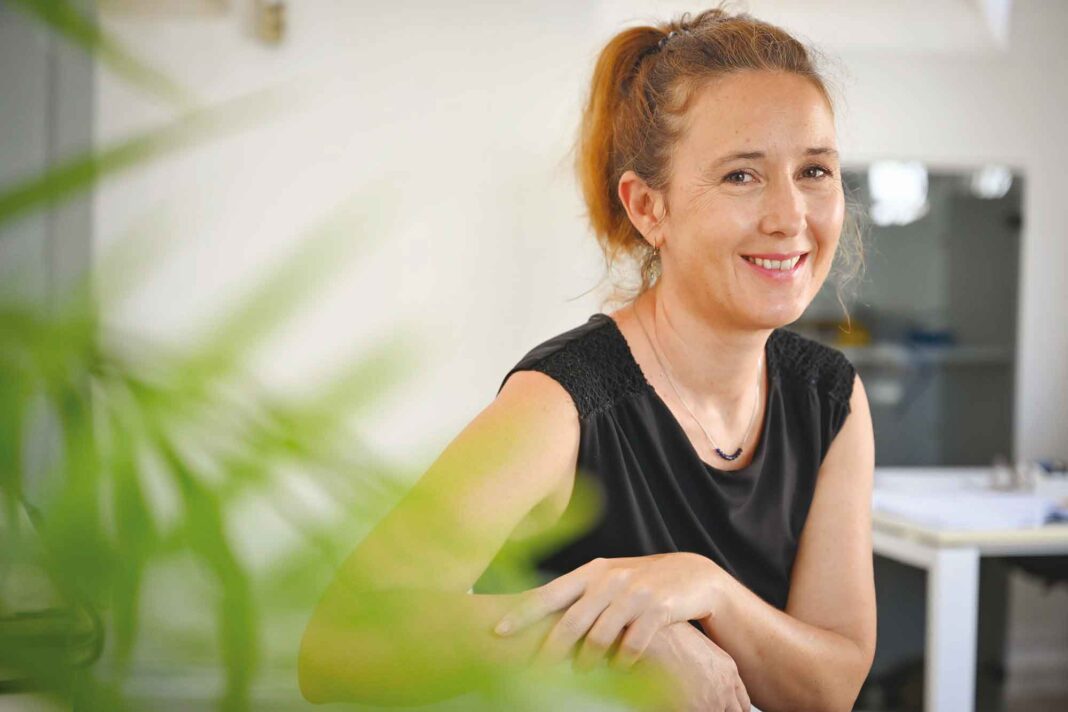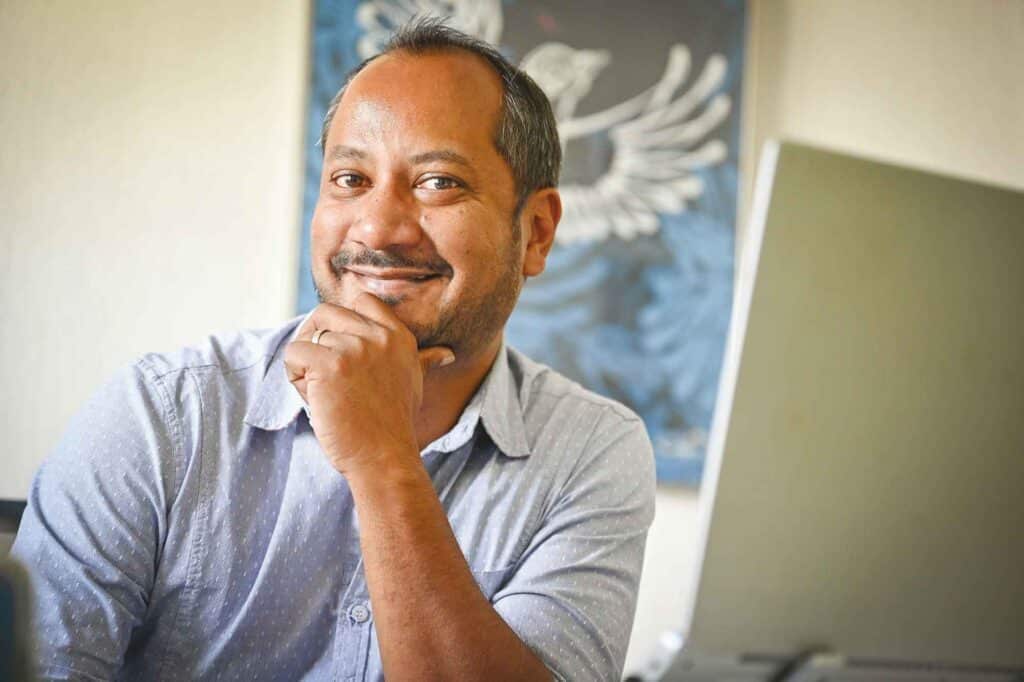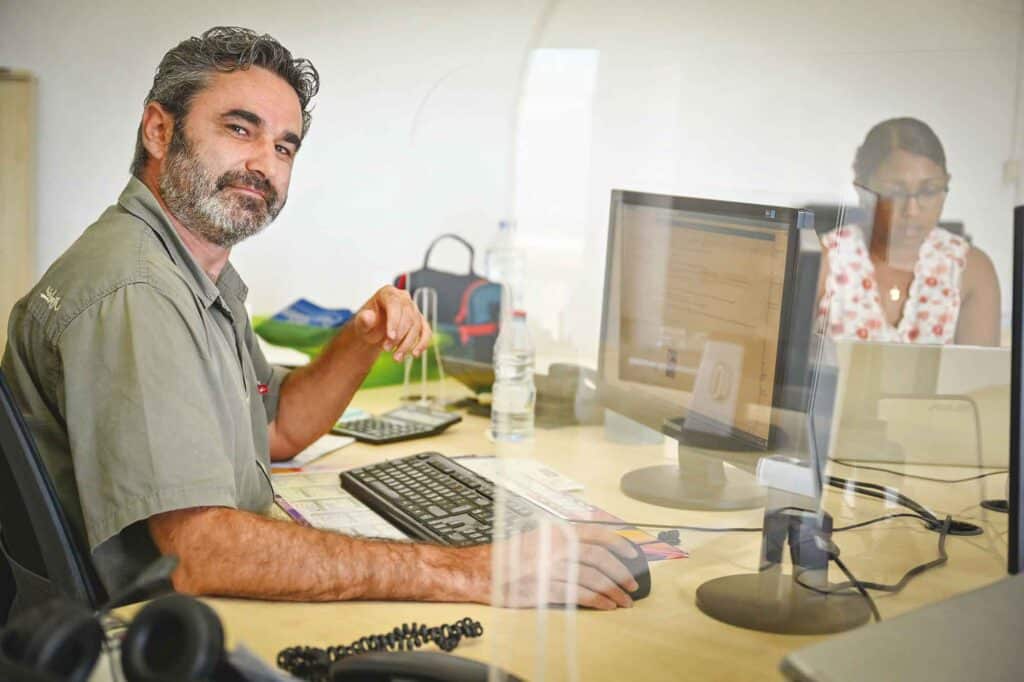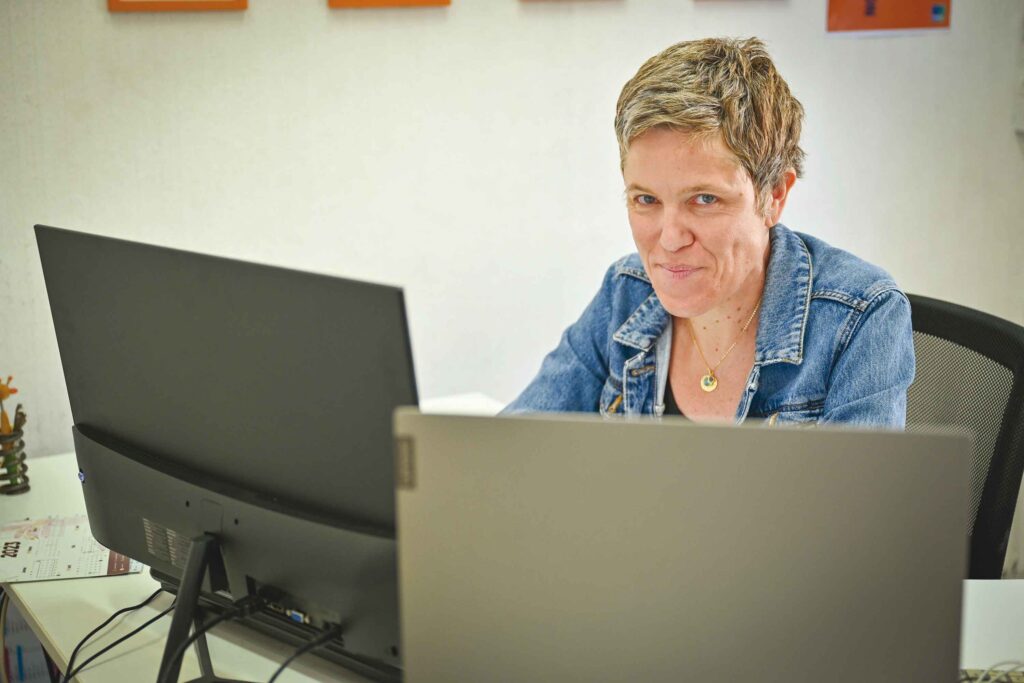Ipsos Indian Ocean :purchasing behaviors monitored closely
a society fragmented in its tastes, ses opinions, his behaviors, but also in search of a solidarity to reinvent to find collective solutions to the anxieties of the time. This is the observation that emerges from Ipsos Indian Ocean studies, the Reunion branch of the famous French institute Ipsos, established in Reunion for twenty-seven years. Its latest study on purchasing behavior and trends is significant in this regard., and above all rich in lessons for businesses. By highlighting the behavior of Reunion Islanders in the inflationary context, it reflects their expectations and, over there, invite businesses to respond through adaptation. Armelle Garnier, Managing Director of Ipsos Indian Ocean, deciphers for Leader Réunion this lucid and motivating insight.
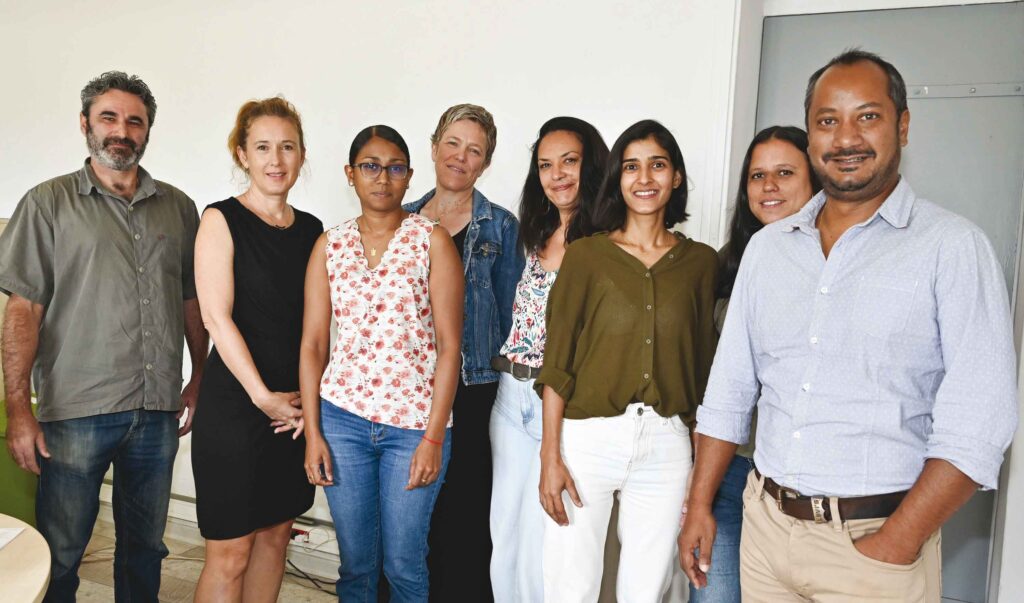
Ipsos Indian Ocean is behind a study, alone of its species and therefore very noted, on the impact of inflation on the purchasing behavior of Reunion Islanders. Can you explain to us the genesis of this study? ? Does it respond to a request from a company or is it an initiative of the institute? ?
This is an initiative of Ipsos Indian Ocean. Identical studies having been carried out in mainland France, we thought it would be interesting and useful to have figures for Reunion. Because if the inflation rate is lower in Reunion than in mainland France, the average income of the population is also lower. It was therefore relevant to have a local measure of the situation.
Is this study accessible ?
This data was presented in part at the StratCo Run business strategy conference last November.. We reused and supplemented them during a conference on consumer trends organized by Imagecorp in March, where we highlighted the behaviors of the categories most affected by inflation. The study is not sold. On the contrary, we want to give the widest access to this data which seems very important to us for understanding the current market.. Just contact us.
If the level of inflation expected in the coming months seems roughly defined – we are talking about 10% in mass distribution –, it is not the same for its duration. Do you plan to repeat this study to monitor changes in purchasing behavior? ?
On future inflation, several figures are circulating in mainland France. We are indeed talking about an average price increase of 12% in supermarkets in February (source Nielsen). In the meeting, in January, according to our figures, we were at 6%. On the other hand, GMS is not the only component of inflation. We must therefore clearly expect inflation to be higher than it is today in the weeks and months to come.. Concerning the duration of the phenomenon, of course, we can consider repeating the study, to have at least one annual measurement of this tension in order to update our figures. But monitoring inflation and its impact on consumption is not the only aspect that matters to us. As our study shows, we believe it is necessary to broaden the spectrum of analysis and highlight signs of market optimism. Yes, there is inflation. Yes, Reunion Islanders who have little or no financial room for maneuver have adopted defensive behaviors, they make do with their budget. There is a purchase restriction, It's true. But we also see the emergence of new trends which are linked to the needs generated by these crises.. And if I talk about crises in the plural, this is because, unlike the economic crisis of 2009, we are currently experiencing several crises at once. The inflationary crisis, the energy crisis, the political crisis, the general crisis of confidence in institutions. And new behavioral trends emerge from this context.
Which, For example ?

to be more responsible in your purchases.
We see the need to have fun and to move away from this anxiety through a search for well-being which takes very diverse forms and is expressed in the consumption of specific goods and services.. We also see that, among wealthier people, the problem of spending is linked to the need to be more responsible in the way we consume. There is a reflection on the moment we live in. Global warming is one of the biggest fears today, just like inflation. More sustainable behaviors — sorting, recycler, repair rather than throw away, fight against food waste, carpooling, etc. — develop. They answer the two questions of a constrained budget and preservation of the environment. But it is clear that, to come true, this expectation depends on the offer offered to him, that is to say institutional actors and economic actors. It is in this sense that these crises also represent an opportunity. In a city, we also see that this trend, and the responses provided by companies, is accelerating. In Reunion too, we see initiatives of this type. At Ipsos Indian Ocean, we want to convey the message that both private and public actors must take up these subjects.
Companies are wondering what they should do in the current context. What do you advise them? : prudence or on the contrary boldness by launching new products that would meet the needs and expectations of the moment ?
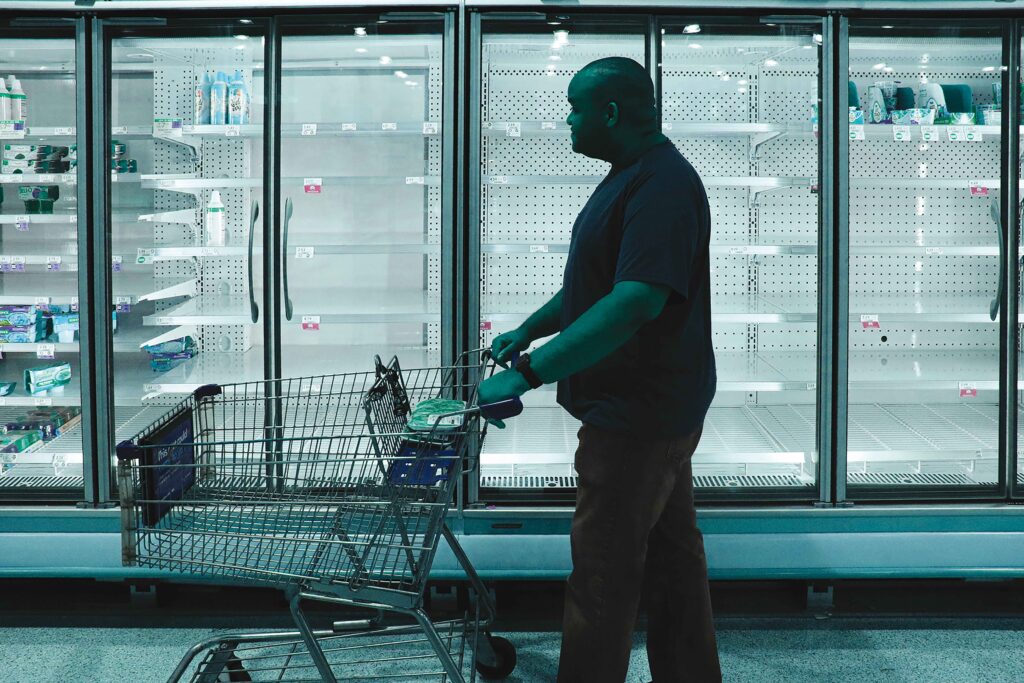
Experience shows : during a crisis, it is always the companies that innovate that emerge the fastest, and the best, of this crisis. It’s not about innovating for the sake of innovation, more, as I said just now, to respond to the concerns and needs of consumers produced by the crisis. Our message, This means that these periods of crisis are obviously difficult times for businesses., with often complicated decisions to make, but they are also opportunities, the opportunity to take a step back in order to identify new trends, new needs, which will allow them to better differentiate themselves from others. Reconciling more sustainable consumption by controlling your budget is one of the ways that we have highlighted in our study. Meet the need for well-being, appeasement, to come out of withdrawal in the face of anxiety, that's another one. In the younger generation, we see this questioning of the old codes of society, through the Me Too movement, through the redefinition of genres, etc. In summary, I would say that a company that does not want to suffer the crisis must understand its mission and how, at his level, it can help the people of Reunion to get through this crisis.
After the Covid crisis, the war in Ukraine. By force, we have the impression of experiencing a change in behavior more than a simple adaptation to circumstances. Is this your opinion ?
Yes. But this change will be more or less marked depending on the home., income levels and education levels. Sustainable, everyone is for. But when your income is very limited, This is obviously not your priority..
Are we experiencing a break from the period of strong growth that has transformed Reunion over the past thirty years? ?
These strong years of economic growth were a catch-up compared to the metropolis. They have reduced the gap with the mainland. But what also reduced it, it’s globalization. Reunion remains an island, it has the constraints of an ultra-peripheral region. But it has opened up considerably to the world with access to information, access to products via the Internet and pay television. The difference between Reunion and mainland France is much less significant than before for this reason as well.. Even if, of course, Reunion keeps, like all regions of France, its particularity. Today, it's different, we are at a turning point. And the question is : how are we going to take this turn ? With the Covid crisis, new behaviors had appeared : the revival of proximity, you local, awareness of our impact on the environment... We said to ourselves that things were going to change. Or, when health pressure dropped, what happened ? Everything is pretty much back to the way it was.. But here is inflation, with the war in Ukraine once again disrupting supplies, raises new fears and reshuffles the cards again. All of this joins and fuels the trends I mentioned. So yes, there is a change. And the web 3.0, the virtual world that is developing, speed things up.
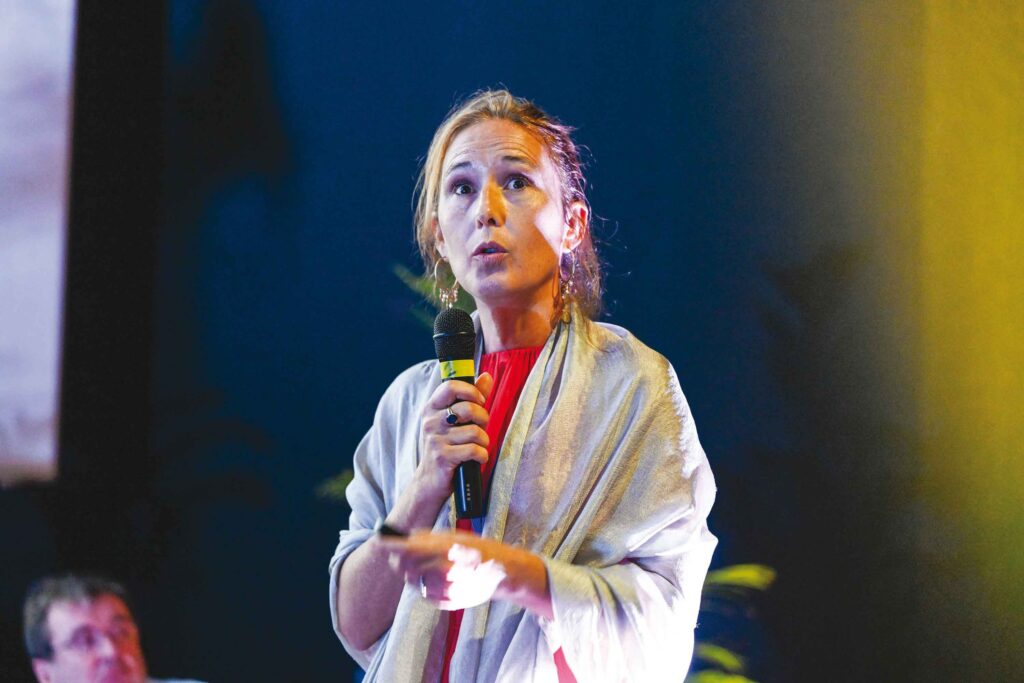
for purchase at the StratCo Run convention in November 2022.
What does today’s society look like when viewed with a statistical and analytical approach? ?

Purchasing behaviors linked to homemade imposed themselves during the health crisis and partly persisted afterwards. Do you think the same could happen with the inflationary wave if it lasts too long? ? Once prices fall, will consumers return to their old habits ?
Doing it yourself progressed during confinement because people had time, but this happened over a fairly short period ultimately. Returning to work, the usual ways of life have found their place. Today, with inflation, doing it yourself is indeed becoming a trend again for the economic gain it allows. We see companies responding to this need with specific products, do-it-yourself kit type. It is likely that the longer the crisis will last, the more these new behaviors will end up becoming lasting. Nevertheless, everything will also depend on the compromise between the economic gain they bring and the constraint in time and energy spent that they impose in relation to the finished product..
Reduce expenses considered secondary (hobbies, voyage, etc.), as many people do by force of circumstances, Isn't this a throwback to the days when income did not allow for secondary expenses? ?

in an anxiety-provoking context.
The two eras are not comparable. The standard of living, purchasing power has increased. And the needs increased with them. Concretely, previously, we did not spend money to buy a mobile phone or to connect to the Internet. Today, these are basic goods. Current inflation requires trade-offs, but these are not the same arbitrations as before.
During his last visit to Reunion, Michel-Édouard Leclerc announced the end of the brand's paper catalogs by next September. Alternative solutions will be put in place, but could a study predict the reaction of Reunion consumers to this revolution? ?
The elimination of paper prospectuses is in the order of things, as was the removal of plastic bags. People are rather aware of the impact of this waste. And digital catalogs are already well established in Reunion where paper and digital coexist. It is true that the approach is not the same. The prospectus, you receive it in your mailbox. The online prospectus, you have to take the step of going and watching it. But it is a habit that will be adopted. Just like before, we sent each other letters and, NOW, emails.
Companies are wondering about the best way to communicate about CSR. This communication becomes a requirement for all. How to be credible in this area ?
This is a subject that falls within the framework of our studies of communication strategy and brand positioning.. We measure the impact of the speeches of local actors on this subject. My response, there is no ready-made recipe. Every business has its rightful territory. She can't talk about just any subject. His speech must correspond to his mission. Otherwise, she will immediately be accused of greenwashing. Consumers, citizens are looking for authenticity. They are much more capable than before of decoding speech that is not coherent. The studies we carry out on this subject are carried out brand by brand., to see where they are legitimate, and where they are not, to express yourself. Based on consumer perceptions, we identify the lines of communication that the company can take.
However, CSR covers the same areas for everyone…
CSR is an extremely broad field ! We immediately think of the impact on the business environment., of what it produces and its waste. But there is also the social, that we often forget : does the company create local employment, is it equitable in its recruitment in terms of gender, original, etc. ? What is its overall impact on its territory? ? This is what sustainability is all about. So there are a lot of topics.
National surveys are sometimes criticized for not taking overseas departments into consideration.. What is your point of view on this and what is the situation at Ipsos? ?
For several years, public statistics, ministerial investigations,include the DOM, which was not always the case before. For my part, I also find it interesting to have both visions. There are real differences between the metropolis and Reunion : as a study institute, we are well placed to know. Differences linked to insularity, to history, to culture. Socio-economic contexts are not the same. Certain Reunionese issues are not found in mainland France and vice versa. I therefore believe it is more accurate to distinguish the overseas departments rather than mixing their results with those of the mainland in national studies.. Economic actors also have an interest in taking these differences into account, when they launch a product for example.
Doesn’t the growing need for individualism make the work of study more and more complicated? ?
The two levels have always existed : the individual, with its particularities, and society, with its social groups. In the 1980s and 1990s, we distinguished major types of behavior that were relatively well identified, which determined large targets. The consumer had no choice, it was up to him to navigate the available offers ! We have entered hyperspecialization. Not at the individual level, because economic actors cannot meet all individual needs, but at the level of more restricted and homogeneous groups in their opinions and behaviors. It is this famous fragmentation that we are talking about. This being, we notice, at the same time, a very strong need for collectiveness and consensus — consensus in the sense of finding solutions together. This is the paradox of this fragmented society, moreover in a very anxiety-provoking context : while asserting oneself more on a personal level, people suffer from this isolation, they want to recreate solidarity. In the meeting, it's very clear. When we asked the people of Reunion to choose between the phrases “all alone, we go faster” and “Together, we go further”, 88% of them chose : « ensemble, we go further. »
“I am a pure product of Ipsos”, Armelle Garnier defines herself by looking at her professional career. Master's degree in econometrics and Master 2 from Sciences Po Grenoble in hand, the Managing Director of Ipsos Indian Ocean began her career at Ipsos, in Paris, upon completion of higher education. She acquires, for twelve years, a specialty in media audience measurement and analysis and qualitative studies on media consumption and perception. Having joined Ipsos Indian Ocean as client director in 2010, she took over as general manager two years later. Created in 1996, Ipsos Indian Ocean is today not only the Reunion subsidiary of Ipsos, but the Ipsos agency intervenes in the three other overseas departments (Martinique, Guadeloupe, Guyana) since the closure of Ipsos Antilles, two years ago. Ipsos is a French and independent group present in 80 countries. It is the third largest study group in the world. Ipsos Indian Ocean can rely on the expertise of this global network to design its studies or adapt studies carried out in France or elsewhere to the Reunion context.. This was the case for the study of the impact of inflation on purchasing behavior, inspired by similar studies carried out by Ipsos in mainland France. “This connection with the metropolis and the world also meets the expectations of many of our customers who want to know how things are happening in the metropolis”, argues Armelle Garnier. Conversely, the agency sometimes works for clients based in mainland France, even internationally, interested in the DOM. If surveys are Ipsos Indian Ocean’s best-known activity, the agency also conducts qualitative studies based on the issues submitted to it : market research for product launch, study on the causes of customer loss, communication on CSR, etc. “Beyond figures and analyzes, we are in the power of recommendation”, concludes Armelle Garnier.
The new priorities of Reunion Islanders to be taken into account by brands
Presented by the Managing Director of Ipsos Indian Ocean, Armelle Garnier, the study on purchasing behavior and current trends in Reunion animated the discussions at a meeting organized by the communication agency Imagecorp, early March, au Village by CA, with around sixty business managers. The opportunity to return to its main findings.
The period from 2019 to 2022 was marked by several successive crises. In a context of uncertainty, habits have evolved with, in the background, the appearance of new anxiety-provoking factors. Result : Reunion Islanders are generally twice as worried about the future as in 2019 with, as a major source of concern, the fear of a plunge into poverty in an uncontrolled inflationary context, worsened by ecological disasters and the possibility of global conflict. Mistrust is also growing towards the authorities and the media. Thus 62% of Reunion Islanders do not trust the government to find fair solutions to their difficulties and 72% say they do not trust the media.. Figures respectively increasing by six and eight points compared to November 2019. More generally, it is confidence in the future that is seriously weakening, while only 13% of the Reunion population says they are confident in the future.
Habits that are changing significantly
Compared to 2019, Reunionese households have drastically reduced their pleasure purchases, and cut back on quality, on buying big brands. Consumers are turning more towards low-cost or distributor products and are hunting for promotions. In order to preserve purchasing power in essential categories (eating, transportation and fuel), expenses drop accordingly for categories considered incidental (savory and sweet biscuits, alcohol, clothes, outings and vacations, high-tech). Purchasing environmentally friendly products, linked to health or purchases in the fresh produce section are, however, balanced between an increase and a decrease observed over the period 2019-2022. The study on the consumption habits of the Reunion population makes it possible to identify the impact of the changes taking place, but also the strategies to adopt to respond to them. Several examples from Reunion illustrate these strategies, like B:BOT, eco-design in packaging or another way of thinking about commercial operations.
Comments collected by Olivier Soufflet
Photos Pierre Marchal Anakaopress


